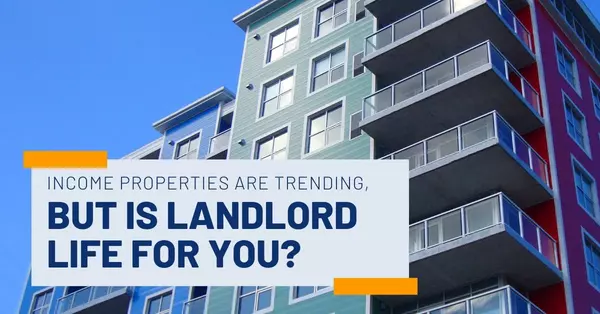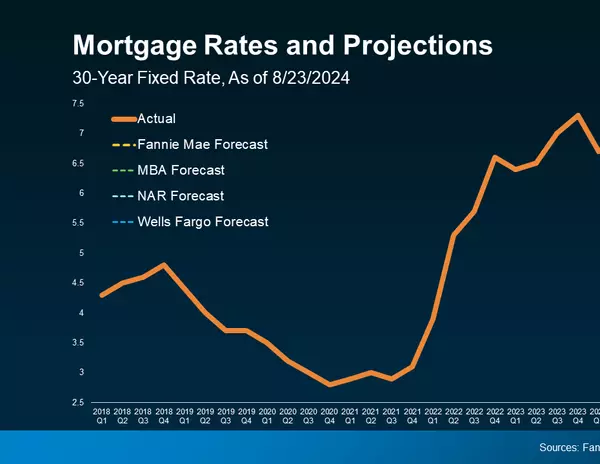
35 Tips to Furnish Your New Home for Less
Buying a new home is one of the most exciting experiences in life. And if you’re like most homebuyers, you’ll be planning your furniture placement and decor before the ink dries on your offer letter. But before you run to the nearest home goods store, take a deep breath. First, you’ll need to delay any major purchases before you close on your new home. A large outlay or additional line of credit could lower your credit score and, thus, impact your mortgage terms.1 Second, moving and closing costs can add up quickly, so it’s important to be strategic with your remaining budget. But don’t worry! There are plenty of ways to save on home essentials, and we’ve rounded up some of our favorites to share with you. PRIORITIZE WHAT YOU REALLY NEED BEFORE YOU START SHOPPING According to Home Advisor, the national average cost to furnish a new house is $16,000, but it can easily soar higher.2 That’s why we recommend starting with a thorough assessment of what you already have and what you actually need to start life in your new place. Here are some steps to help you prioritize your purchases and keep spending in check. Make a list of everything you need. Going room by room could help you brainstorm—for example, you might list items ranging from a mattress to blackout curtains for your new primary bedroom. Inventory what you already have. Cross the big (dining table) to the small (kitchen knives) off your list as you go. Divide the remaining items into three groups: things you need right away (a mattress), items you’d like to have in the near future (a coffee table for your living room), and pieces that can wait (an area rug). Calculate your budget. Figure out how much money you’ll have available for immediate purchases after the sale has closed, and start researching the items on your priority list to understand how they’ll fit into your budget. Don’t rush the process. Bringing older items to your new space doesn’t mean you need to keep them forever. Consider hanging onto pieces that can tide you over for a year or two until your bank account has recovered from the costs of a home purchase. Before you start shopping, make sure you know which appliances and fixtures are included with your home purchase. We can inform you of the standard contract terms when you’re making an initial offer and note any additional items that you would like to request. TIME YOUR PURCHASES TO MAKE THE MOST OF SEASONAL SALES Did you know that some home items predictably go on sale at certain times of the year? If you can wait to buy these pieces when prices are lower, you could save significantly. Here are some of the best times to buy household essentials:3,4 Bedding and linens: January TVs: Black Friday/Cyber Monday and late January (before the Super Bowl) Furniture: February and August, as well as Black Friday, Memorial Day, and Labor Day Large appliances: Labor Day through October Small kitchen appliances: May Mattresses: Holiday weekends, especially Memorial Day, Labor Day, and 4th of July Vacuum cleaners: April Tools: June Outdoor furniture: August through October Generally speaking, holiday weekends (as well as Black Friday and Cyber Monday) tend to be great times to find deals. If the item you’re looking for is seasonal—like patio furniture or holiday decorations—waiting until the end of that season usually pays off. FIND ALTERNATIVE SHOPPING SOURCES Can’t wait for a sale? It’s time to think outside of the box (the big-box stores, that is). There are plenty of surprising places to find great furniture and houseware deals. Check out overstock and liquidation stores. These stores purchase items other retailers haven’t sold and offer them at a steep discount. The inventory can be hit or miss, but you can often get a great deal if you find what you’re looking for.5 Try private membership/warehouse stores. Retailers like Costco and Sam’s Club often have great deals on home goods. If you’re not already a member, ask family or friends if they are willing to take you to look around before you commit. Consider open-box items. When buyers return items like furniture or electronics, retailers can’t always sell them as new, even if they haven’t truly been used. Look online for open-box deals from retailers like Wayfair and Amazon Warehouse or visit local retailers to see what they have in stock. Give scratch-and-dent appliances a chance. These appliances are brand new but sold at deep discounts because their external packaging was damaged. Typically, this means that flaws are purely cosmetic—but it’s always possible that the merchandise has suffered more serious damage. So, be sure to check out the appliances carefully and ask about included warranties.6 Expand your window treatment search. Window treatments can be surprisingly expensive, but it’s often possible to save by buying off-the-shelf offerings in standard sizes. If you need a custom size or material, consider ordering online from a discount supplier and installing them yourself. Shop secondhand. In addition to thrift stores and garage sales, Facebook Marketplace, NextDoor, and Craigslist are all great places to find deals in your area. Are alternative shopping sources still a stretch for your budget? Check out local Freecycle or “Buy Nothing” groups, which are often hosted on Facebook. Participants offer big and small items they no longer need—everything from furniture to clothing hangers—for free to other members.7,8 DON’T BE AFRAID TO NEGOTIATE FOR A BETTER DEAL Many people don’t realize that prices for home goods, from furniture to appliances, are often negotiable. While asking for a discount can be intimidating, it’s common practice in many industries, although more so at independently-owned stores than chains. Here are a few tips:9,10 Comparison shop before you walk into a store. If you can find a lower price for the same item elsewhere, many retailers will match it. Ask the store associate or manager for the best price available. They may be able to offer additional discounts or coupons. If you can pay in cash, ask if you can get a discount for doing so. The seller may be happy to offer a small price reduction to avoid paying processor fees. Call ahead to ask about applicable discounts. Some retailers offer price reductions for active military, veterans, teachers, first responders, or senior citizens on certain days or times of the year. Point out scratches or dings to the sales associate. They may be willing to offer a discount to compensate for the imperfection. Ask about floor models. Many stores offer these pieces at a lower price, even if they’re in like-new condition. After you’ve negotiated a killer deal, don’t forget to ask for free or discounted delivery! Sometimes furniture and appliance stores will offer complimentary delivery or installation if you spend a certain amount or purchase multiple items. MAKE THE MOST OF REWARD PROGRAMS AND COUPONS Every penny counts when you’re on a budget—and spending a little extra time maximizing reward programs and discounts is usually worthwhile. Sign up for a change of address kit with the United States Postal Service. You’ll need to do anyway to forward mail to your new address, and it comes packed with valuable coupons.11 Make sure you never miss a sale. Sign up for your favorite retailers’ email lists and follow them on social media for discounts and sale alerts. Take advantage of loyalty programs. If you’re making a big purchase or getting multiple items from one store, ask about free loyalty programs. Signing up often comes with an introductory coupon. Consider store credit cards (carefully). Store credit cards can offer significant discounts—but only charge items you can pay off right away to avoid interest, and never open new lines of credit until your home purchase is complete, since it can affect your credit score. Enroll in coupon and cashback programs. When you’re shopping online, programs like Rakuten and Honey can help you find coupon codes and give you cash back on purchases. While you’re at it, why not set up a housewarming registry?12 You can share the link with family and friends if they ask what you need—and you can also use it to score discounts. Many stores offer a percentage off to help you buy unpurchased items on your registry. GET CREATIVE If you want to avoid a cookie-cutter home aesthetic—and save a few bucks—try reimagining your existing furniture and how it could fit into your new space. Here are a few of our favorite strategies. Repurpose what you have. Instead of buying a new item to fit a specific purpose, ask yourself if you can use what you have in a different way. For example, repurpose an old dresser as a television stand or use a mismatched dining chair in your home office. Upgrade existing items. Sometimes, a new coat of paint or varnish, or simply swapping out drawer pulls and handles, can lend a new lease on life to an old piece of furniture. You can also keep this strategy in mind if you see second-hand items that would be just right if they were a different color or had nicer fixtures. Reupholster instead of buying new. If you have a tired-looking sofa or chair that’s still comfortable and stable, think about getting it reupholstered in new fabric instead of replacing it. Get handy. Building furniture is certainly not for everyone, but with some basic tools and help from the internet, you may find that simple items like headboards are well within your grasp. You might also be able to repair pieces you already have and avoid shopping altogether. Do-it-yourself projects can be fun, but they aren’t for everyone. If you’d like some professional help, reach out for a list of our recommended service providers. WE’RE HERE TO HELP We know budgeting for a new home can be overwhelming, and we want to make the process easier for you. If you’re considering a home purchase, we can advise you on a realistic budget and help you review your options. We can also offer insights on other financial considerations and programs and incentives that can help make homeownership more attainable. Reach out for a free consultation! Request a professional home valuation Start your home search The above references an opinion and is for informational purposes only. It is not intended to be financial, legal, or tax advice. Consult the appropriate professionals for advice regarding your individual needs. Sources: Bankrate -https://www.bankrate.com/mortgages/avoid-mortgage-closing-missteps/ Furniture Bank -https://www.furniturebank.org/how-much-does-it-cost-to-furnish-an-apartment/ US News -https://money.usnews.com/money/personal-finance/saving-and-budgeting/articles/the-best-time-of-year-to-buy-everything NerdWallet -https://www.nerdwallet.com/article/finance/wht-to-buy-every-month Business Insider -https://www.businessinsider.com/personal-finance/strategies-to-save-money-on-furniture-for-my-new-home?r=US&IR=T CNET -https://www.cnet.com/home/kitchen-and-household/buy-scratch-and-dent-appliances/ Real Simple -https://www.realsimple.com/home-organizing/green-living/buy-nothing-groups Freecycle -https://www.freecycle.org/ Consumer Reports -https://www.consumerreports.org/cro/magazine/2013/08/how-to-bargain/index.htm Realtor.com -https://www.realtor.com/advice/home-improvement/furniture-stores-money-saving-tricks/ The Krazy Coupon Lady -https://thekrazycouponlady.com/tips/money/usps-moving-coupons Taste of Home -https://www.tasteofhome.com/article/housewarming-registry/

Income Properties Are Trending, But Is Landlord Life for You?
If the thought of investing your money into brick and mortar—or perhaps some stylishly-painted siding—excites you, join the club. Investing in real estate has long been one of Americans' favorite ways to grow their wealth. In fact, over 70% of single-family rental properties are currently owned by individual investors rather than corporations, according to Census data.1 Moreover, a decade's worth of Bankrate surveys has found that Americans often prefer real estate for long-term wealth building over other investments. According to Bankrate's latest survey, for example, Americans have historically embraced real estate, in part, because of the strong return on investment it can offer—especially to investors willing to stick with a property over time.2 It’s also a popular way to hedge against inflation since both rental income and property values tend to rise in tandem with overall prices.3 Now, as higher interest rates continue to push priced-out homebuyers to the sidelines, a new crop of “mom and pop” investors are eyeing the mushrooming rental market as a potential goldmine.4 Interest in buying a home to both live in and rent is also on the rise, especially amongst cash-strapped buyers looking to supplement their mortgage payments.5 But how do you know if you’re well-suited to take advantage of these real estate investment opportunities? Here are three signs that owning a rental property could be right for you. 1. YOU'RE A HOMEBUYER WHO WANTS HELP COVERING THE MORTGAGE If you're looking for a creative way to buy a home without overspending, “house hacking” could be the answer. Increasingly popular with first-time homebuyers and budget-conscious investors, house hacking simply means buying a home that you intend to live in while renting out a portion of it to one or more tenants.5 House hacking also tends to be easier to break into than traditional real estate investing since you don't need as high a credit score or as large a down payment to qualify for a mortgage. In fact, some government-backed mortgage programs will let you buy a primary residence with little to no money down.6 Buying a home you don't plan to live in, by contrast, may require you to put down as much as 15% to 25% to qualify for a loan.7 If you house hack, the money you collect for rent each month can help cover your mortgage and other homeownership expenses. Depending on your setup, you may also be able to save on utility bills by splitting them with your tenant or tacking a portion onto their monthly rent. Another major advantage of house hacking is that it entitles you to certain tax benefits and deductions available only to landlords.8 When it's time to start your search, we can help you find a property that's ideal for house hacking, such as a house with a walkout basement, a multifamily unit, or a home with enough outdoor space to build an accessory dwelling unit or garage apartment. 2. YOU'RE AN INVESTOR LOOKING FOR STEADY AND RELIABLE INCOME If you’re not crazy about the idea of a live-in tenant but still desire an additional stream of income, a dedicated long-term rental property could be a better option for you. Besides the monthly proceeds, purchasing a rental home can also add diversity and long-term stability to your investment portfolio and help you build wealth over time.9 According to data from the Federal Reserve, real estate owners have historically prospered. In early 2020, for example, the median home was worth almost triple what it was 30 years prior. Then, during the pandemic-era real estate boom, average home prices grew at an especially frenzied clip, climbing by nearly 50%, on average, in just two and a half years.10 However, the rate of appreciation can be hard to predict, so it’s prudent to invest in a property that also offers positive cash flow, which means the rent you take in exceeds your expenses. This strategy helps to ensure that you’ll put money in your pocket each month, even if the property’s value takes time to grow. While today’s higher mortgage rates can make it more challenging for landlords to turn a profit, investment opportunities aren’t reserved for cash buyers. In fact, currently, almost 60% of real estate investors take out a loan to finance their purchase, according to Thomas Malone, an economist at the real estate data firm CoreLogic.4 He also notes that more small investors are stepping in to meet demand for rental housing, which has grown since many would-be buyers remain priced out of the purchase market.4 If you want to explore opportunities for a residential rental property that's good for your wallet and attractive to renters, we can help. Reach out with questions or to schedule a free consultation. 3. YOU'RE AN EXPERIENCED INVESTOR LOOKING TO MAXIMIZE YOUR POTENTIAL RETURNS Another increasingly popular way to draw income from an investment property is to convert it to a short-term vacation rental. But beware: This strategy can be riskier as some municipalities have tightened rental restrictions and others are suffering from market oversaturation.11,12 With that said, if you're an experienced investor who can afford to take on some uncertainty, then investing in a short-term rental could make sense for you. If you find the right property, for example, you could earn significantly more renting it short-term on a platform like Airbnb than if you rented the home to a long-term tenant.11 The key is to keep it occupied as much as possible at a premium nightly rate. To do that, you’ll need some marketing savvy, hospitality skills, and business acumen. Of course, you can always hire a professional property manager, but you’ll need to factor the cost into your budget. The vacation rental market enjoyed a boom during the pandemic, and some inexperienced investors are finding they bit off more than they can chew. As a result, there's an opportunity to snap up some of these properties, but you'll need some cash on hand and a willingness to learn the business.12 We can help you scout opportunities in our local market or, if you’re interested in investing in another area, we can refer you to an agent there for assistance. BOTTOMLINE Investing in real estate can be a great way to build your wealth long-term and earn some extra income. But to make the most of your investment, it pays to be strategic. Call us for a consultation so we can discuss your goals and budget. We'll help you discover neighborhoods with the best income potential, point out the homes most suited to renting, and help you brainstorm the best investment strategy for you. Before you take the plunge, make sure you can answer “YES” to these three questions: 1. Are you ready to be a landlord? Owning a rental property can take a lot of time and energy. You're not just buying passive income, you're also building sweat equity since the time you spend maintaining, marketing, and managing your rental can add up quickly. So be prepared to do some soul-searching to ensure you’ll not only flourish as a landlord, but actually enjoy it. If you want to invest in real estate but aren’t prepared to put in the day-to-day effort required, we can refer you to a property management service for help. 2. Can you afford to invest in real estate? The last thing you want is to get over-extended with your new real estate venture. Besides the cost of purchasing the property, you’ll need to consider additional expenses, like property taxes, insurance, administrative costs, and maintenance and repairs. You will also need a cash reserve for unexpected issues or potential vacancies. We can help you run the numbers to determine whether you can charge enough rent to offset your expenditures. 3. Have you found the right income property? Even if you’ve got your finances in order and are emotionally ready to invest, your success as a landlord will also depend on the property you buy. The criteria for a good rental home and a good family home are often different, so it’s important to lean on professionals for advice. We can help you find an ideal rental property, taking into account your budget, risk appetite, and investment goals. If you decide to invest in a different area, we'll connect you with an agent who's more plugged into that community. Reach out today to schedule a free consultation. *The above references an opinion and is for informational purposes only. It is not intended to be financial, legal, or tax advice. Consult the appropriate professionals for advice regarding your individual needs. Sources: PR Newswire -https://www.prnewswire.com/news-releases/census-data-show-individuals-continue-to-own-largest-share-of-single-family-rental-homes-301725024.html Bankrate -https://www.bankrate.com/investing/survey-favorite-long-term-investment-2022/ Forbes -https://www.forbes.com/sites/forbesbusinesscouncil/2022/04/14/why-income-generating-real-estate-is-the-best-hedge-against-inflation/?sh=1081ce921746 MarketWatch -https://www.msn.com/en-us/money/realestate/another-challenge-for-homebuyers-more-investors-are-snapping-up-homes-and-40-of-them-are-using-cash/ar-AA1foWSB Realtor.com -https://www.realtor.com/advice/buy/on-the-house-house-hacking-your-way-into-your-first-home/ NerdWallet -https://www.nerdwallet.com/article/mortgages/government-home-loans LendingTree -https://www.lendingtree.com/home/mortgage/down-payment-for-rental-property/ Quicken Loans -https://www.quickenloans.com/learn/house-hacking Investors Business Daily -https://www.investors.com/etfs-and-funds/personal-finance/rental-properties-investing-experts/ St. Louis Fed FRED Economic Data -https://fred.stlouisfed.org/series/MSPUS Story by J.P. Morgan -https://story.jpmorgan.com/real-estate-news/thinking-about-investing-in-short-term-rentals-heres-what-to-know Skift -https://skift.com/2023/07/21/short-term-rental-saturation-leads-to-a-correction-and-lots-of-home-sales/

7 Common Homebuyer Regrets (And How To Avoid Them)
To avoid buyer's remorse, be sure to consider your future self when shopping for a home. Most new homebuyers don't regret becoming homeowners. In fact, according to a survey by LendingTree, 80% of recent buyers who successfully overcame a challenging housing market say they're glad they found their current homes.1 But that doesn't mean newly-minted homeowners don't have any regrets about their buying choices. On the contrary, research shows that even the most-satisfied homeowners would change some aspects of their home purchase if given the opportunity. According to a recent survey by Anytime Estimate, nearly 3 out of 4 buyers who purchased a home in 2021 or 2022 still have a few regrets.2 Some question their decision to move to a neighborhood they still don't love. Others wish they had been less picky about where they lived so they could have paid less. Many are afraid they overspent or think they sacrificed too much in their rush to buy a home. Here are some of the most common homebuyer regrets we see, along with our professional advice on how to avoid them. REGRET #1: Spending More Than Necessary No one wants to overpay for their new home purchase (and, luckily, with the right guidance, doing so is avoidable). But even if you've secured a winning purchase price, there are still plenty of ways to accidentally overspend. One of the most common ways to overpay? Choose the wrong mortgage. In fact, in today's higher-rate environment, this can be one of the riskiest mistakes a new buyer can make. According to a recent survey, for example, nearly three-quarters of homebuyers leave money on the table by not bothering to shop around for the best rate.3 And research by LendingTree suggests that buyers in major metro areas lose an average of $63,151 over the life of their loan just by picking the first mortgage they're offered.4 Lesson Learned: As long as you stick to what you can afford, buying a home can be a boon for your financial health. The longer you live in it, for example, the more your home is likely to appreciate in value and boost your long-term savings. But to get the most value from your purchase, it's worth your time to compare financing options and shop around for the best deal. We also recommend getting a mortgage pre-approval before you start your home search so you know what's within reach. We can refer you to one of our trusted lending partners for help. REGRET #2: Rushing Into a Home Purchase In a competitive housing market, it's often necessary to act fast to secure a home. But don't let a need for speed tempt you into making an offer before you've thought through or fully vetted a new property. Rushing into a home purchase isn’t just risky, it's also one of the most commonly cited sources of homebuyer regret. According to Anytime Estimate, for example, more than 1 in 4 homebuyers felt remorse over how quickly they sped through the home buying process.2 Getting swept away by your emotions can also lead to buyer's remorse. If you've found a home you love and are competing with other buyers, it can be tempting to overlook key details or bid more than you can afford. That's one reason it helps to have a skilled professional by your side to calmly guide you through the process and ensure you act with reason, rather than emotion. Lesson Learned: Buying a home is exciting. But if you don't keep your emotions in check or act too impulsively, you could make poor choices in the moment that are hard to undo later. To avoid making last-minute decisions that could backfire, know what you want, what you need, and what you can afford before you start your home search. We can help you set priorities so you’ll be able to move forward with confidence when the time is right. REGRET #3: Miscalculating the Costs of Homeownership Though real estate is a great long-term investment, it can be pricey in the short-term, often surprising homeowners who aren't prepared for it. According to some estimates, for example, annual maintenance could cost as much as 1% or more of your home's purchase price.5 Some buyers also forget to factor in additional ownership expenses, such as property taxes, insurance, and repairs. Failing to think through the costs of homeownership is one of the most common sources of homebuyer regret. According to Anytime Estimate, for example, nearly half of the homebuyers who regret their purchase said they underestimated how much they would spend to live in it.2 However, some homes cost more to live in and maintain than others. So even if you're certain that you can afford the average cost of homeownership, that doesn't necessarily mean that every home in your price range will fit neatly into your budget. For example, very old homes with unique maintenance requirements could be extra pricey to keep up. Similarly, homes with high HOA or condo fees could also eat into your monthly budget. Lesson Learned: A home should help you build your wealth, not drain it. So it's important to factor in all the potential costs of living in a home—not just obvious ones like your mortgage payment and taxes. To ensure you don't get overextended, add up your estimated maintenance and repair costs, as well as any miscellaneous expenses that are unique to a particular home. We can help you with these estimates—and, if needed, present you with some less-costly alternatives. REGRET #4: Underestimating the Time Required To Maintain or Renovate a Home One of the most joyful aspects of homeownership is getting to relax in a home that's all your own. But if a home is too high maintenance, then you may not have time to savor it. Many homeowners love to spend their weekends puttering in their gardens or undertaking home improvement projects. But if that's not you, then you may not like living in a home with a big yard or with high-maintenance features, like a pool. According to a survey by Hippo, for example, 47% of homeowners who feel some regret about their home purchase complain that too much maintenance and upkeep is required.6 Similarly, buyers who purchase fixer-uppers are often surprised by how much time it takes to rehab their new homes. Although buying a fixer-upper is a great way to save on the purchase price, you could come to resent it if it eats up all your free time. Lesson Learned: Renovation and maintenance projects are often time-consuming and stressful. So beware of committing to a property that requires too much of your attention if you don't have the time or patience for it. With that said, home improvement projects can also bring a lot of joy and satisfaction to owners who like rolling up their sleeves. We can talk through the realities of homeownership with you and help you choose a property that will fit your personality and schedule. REGRET #5: Ignoring or Skipping a Home Inspection It’s easy to get swept up in the excitement of buying a home. Sometimes, buyers will agree to skip a home inspection to sweeten their offer in a competitive market. They may also be tempted to pinch pennies since they’re already facing a large outlay. However, if you skip out on a home inspection, you could come to regret it. When you hire a home inspector, you get a professional, in-depth examination of the property’s structures and systems before you buy it. It’s a worthwhile investment that can save you money in the long run, either by warning you away from a bad purchase or by providing a list of deficiencies you can use to negotiate with the sellers. But even the most thorough home inspection isn't going to be worth much if you don't take the time to carefully consider it. If at all possible, make sure you’re on-site during the inspection so you can observe and ask questions. And don’t forget to re-evaluate any repairs that the seller agrees to make to ensure they’ve been properly completed prior to closing. Lesson Learned: A home inspection can reduce your risk and save you money in the long run. But to maximize its effectiveness, you will need to be an active participant in the process. We’d be happy to share a list of experienced and trustworthy home inspectors in our area. And when the inspection report is complete, we can help you decide if the purchase is worthwhile and negotiate any relevant seller concessions and repairs. REGRET #6: Choosing a Home That Doesn't Fit Homeownership is often a better investment if you’re willing to stay put for at least five years.7 But if your newly purchased home isn’t a good fit, then you may not want to stick around that long. Many homeowner complaints come down to simple lifestyle issues: Although a mismatch may seem small at first, the problems can magnify if you make so many compromises that they interfere with your quality of life. Or, sometimes homebuyers can fall in love with a beautiful home and forget about practicalities. For example, a stunning kitchen can’t replace a needed bedroom or bathroom. And a sparkling pool may sit empty if the home requires a lengthy commute to your office. Make sure you set some guardrails during your home purchase so you don’t over-compromise or accidentally prioritize your wants over your needs. Lesson Learned: When you’re dealing with limited inventory or a fixed budget, it may be necessary to sacrifice some items on your home wish list. But if you fail to secure your must-haves, you could come to regret your home choice. We can help you avoid an ill-fitting home purchase by working with you to set (and stick to) priorities and parameters before you begin your search. REGRET #7: Purchasing Without Professional Help Another path to homebuyer regret? Foregoing the expert guidance and market insight that you can only get from a licensed real estate agent. Buying a home without professional representation can be extremely risky. Therefore, it’s no surprise that 86% of buyers enlist the help of an agent when purchasing a home. And the vast majority find their assistance to be invaluable: 89% say they would use their agent again or recommend them to others.8 Real estate is hyperlocal and extremely fluid—especially these days when the market is in constant flux. So it pays to have a knowledgeable expert by your side who can guide you through an often-complicated process. We can help you avoid expensive mistakes that could lead to buyer’s remorse, all while making your home purchase as seamless and stress-free as possible. And since the home seller typically pays our commission, there’s no added expense for you! Lesson Learned: When you work with a real estate agent, you benefit from a wealth of expertise and on-the-ground insight that you can't get anywhere else. We’ll help you steer clear of the missteps that so many homebuyers make, so you can focus on enjoying your new home instead of questioning your choices down the road. The best part? Since the majority of home sellers pay us a commission at closing, in most cases, we offer our invaluable guidance and assistance at no additional cost to you! BOTTOMLINE No one wants to look back on their home purchase and realize they made a big mistake. We can help you avoid the pitfalls so you can buy with confidence. To learn more about how we work to ensure our clients’ satisfaction, reach out today to schedule a free consultation. *The above references an opinion and is for informational purposes only. It is not intended to be financial, legal, or tax advice. Consult the appropriate professionals for advice regarding your individual needs. Sources: LendingTree - https://www.lendingtree.com/home/mortgage/homebuying-process-survey/ Anytime Estimate - https://anytimeestimate.com/research/american-home-buyers-2022/ Zillow Home Loans -https://zillow.mediaroom.com/2022-11-18-Prospective-home-buyers-spend-about-as-much-time-researching-new-TVs-as-they-do-mortgage-lenders LendingTree - https://www.lendingtree.com/home/mortgage/mortgage-shopping-study/ CNBC - https://www.cnbc.com/2022/05/01/survey-majority-of-homeowners-have-regrets.html Hippo -https://www.hippo.com/blog/2022-hippo-housepower-report-how-homeowners-are-responding-essential-maintenance-during Realtor.com - https://www.realtor.com/advice/sell/how-soon-can-you-sell-a-house-after-buying/ National Association of Realtors -https://www.nar.realtor/research-and-statistics/research-reports/highlights-from-the-profile-of-home-buyers-and-sellers#homebuyers
Categories
Recent Posts











